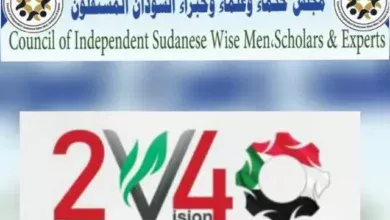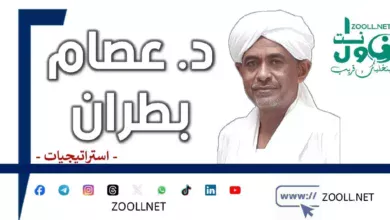Governor..Abu (Saluka) – Paths – ✍️ Mahfouz Abdeen

Nile Governor Muhammad al-Badawi Abd al-Majid Abu Qarun appeared at the meeting of the agricultural and water harvesting season group on Monday, carrying a suluka in his hand. The suluka is a simple manual agricultural machine made of wood. tree sticks or wood and is used to make a small hole in the ground to spread seeds and seeds, and most are used in agriculture, and it seems that this is symbolic of this meeting.
The Suluka machine may have been discovered by the first man on the Nile, and with the passage of all these (centuries) of time, the governor (Abu Qarun) came to bring it yesterday at this hour, as an indication from him, that it is possible with the simplest means to cultivate the largest areas if one has the will and the aids and there are. Thousands of acres irrigated by rainwater are not (exploited) and only need to be sown and followed, and they can. give high productivity.
The idea launched by the Nile State is to allocate 4 acres of rain-fed crops with seeds to every expatriate willing and able to cultivate. This material is available in all localities in the state.
This idea is beautiful and can be practical by employing human energies and exploiting available resources to create a production process that benefits the expatriate and his family and from which the State benefits, regardless of the type or quantity of the product.
It seems that excessive enthusiasm has overwhelmed the governor or the group present in the hall of the Ministry of Education in Al-Dahmer to implement the idea in the remaining time, and it may be in the calculations of others that time has passed, and as farmers say, it is agriculture (deadlines).
The governor, who recently returned from Turkey after an official visit, caught some of his “breath” and renewed some of his “ideas”, especially in the agricultural process, which he said is actually the most important work that can solve many problems of citizens and the government, especially since humanitarian aid and delivering food to the needy or affected people have become one of the methods of pressure from the international community, as is currently the case in Sudan.
However, the idea of allocating this space to expatriates remains to be reconsidered for several reasons, including that most of the expatriates are from Khartoum State and most of them are employees, workers, teachers and other types of work, whether in the public or private sector, and this group is the same majority that may not be enthusiastic about the idea because they are used to the work model throughout their lives, and the second group of expatriates are those who work in the sector. market in its various forms, and since their arrival in the Nile State, they have been involved in the markets, especially those with the professions they used to do in Khartoum, and these people have become accustomed to it and its quick return and will not exchange it for anything else. Those who are torn by the causes and have not managed to find solutions for themselves, perhaps some of them are turning to this idea, and if they go into the valleys, they will not stay long and may come back and leave what they have planted in the open without care or attention.
Therefore, the idea of relying on expatriates for this great work and this excellent idea remains a risk, and this idea or this work will die of a “heart attack” for the same reasons.
Perhaps the success of the idea depends on the success of its implementation, and I think that if the governor remained in office until next season and this is (weak), he could plan this idea by other means to implement it, including adopting work. in the form of groups such as associations, if they are in the neighborhoods or elsewhere, youth organizations, and even students. Each school can allocate a special space for them even if the season coincides with the summer holidays. For example, Berber, Atbara. Secondary schools, Shindi or Abu Hamad can have a specific space, and there are other benefits for students and teachers in their connection with the land, increasing their agricultural culture and how to manage the stages of crop growth, and their schools benefit from it. from the yield of the harvest. In terms of maintenance, improving the working environment and solving some urgent problems, even if the schools have boarding facilities, they will have contributed to solving the food problem, and thus these works will have saved large amounts of money from the state budget, especially for boys' secondary schools.
The idea can be developed further, by allocating places to students from agricultural and veterinary colleges of universities based in Nile State, or to Nile students studying in agricultural and veterinary colleges of Sudanese universities through their student connections.
But one of the most important threats to this idea and one of its greatest obstacles is the conflict that arises between the new farmers and those who claim to own these lands. If the governor does not find a solution to this problem, we can simply raise our hands to the sky and recite (Al-Fatihah) and pray for (the spirit) of the idea.
We belong to Allah and to Him we shall return.





